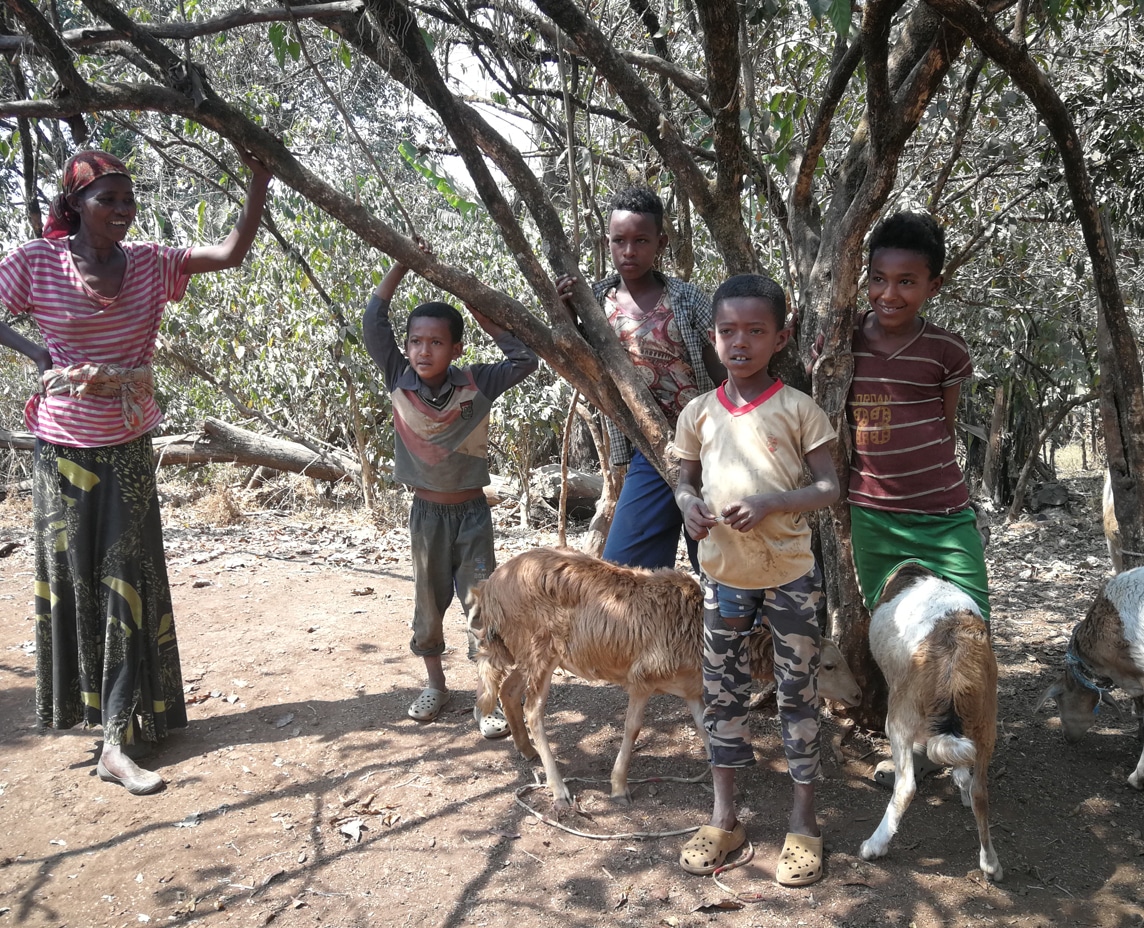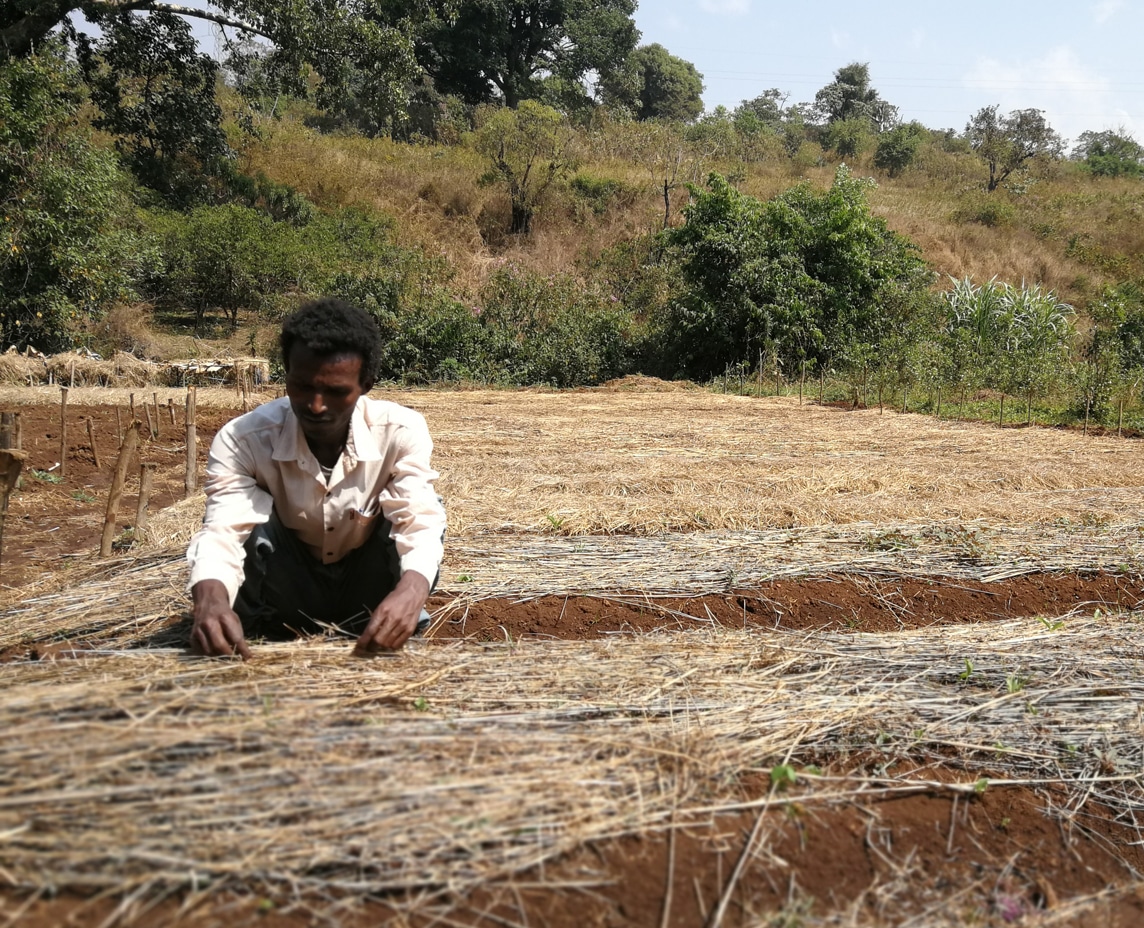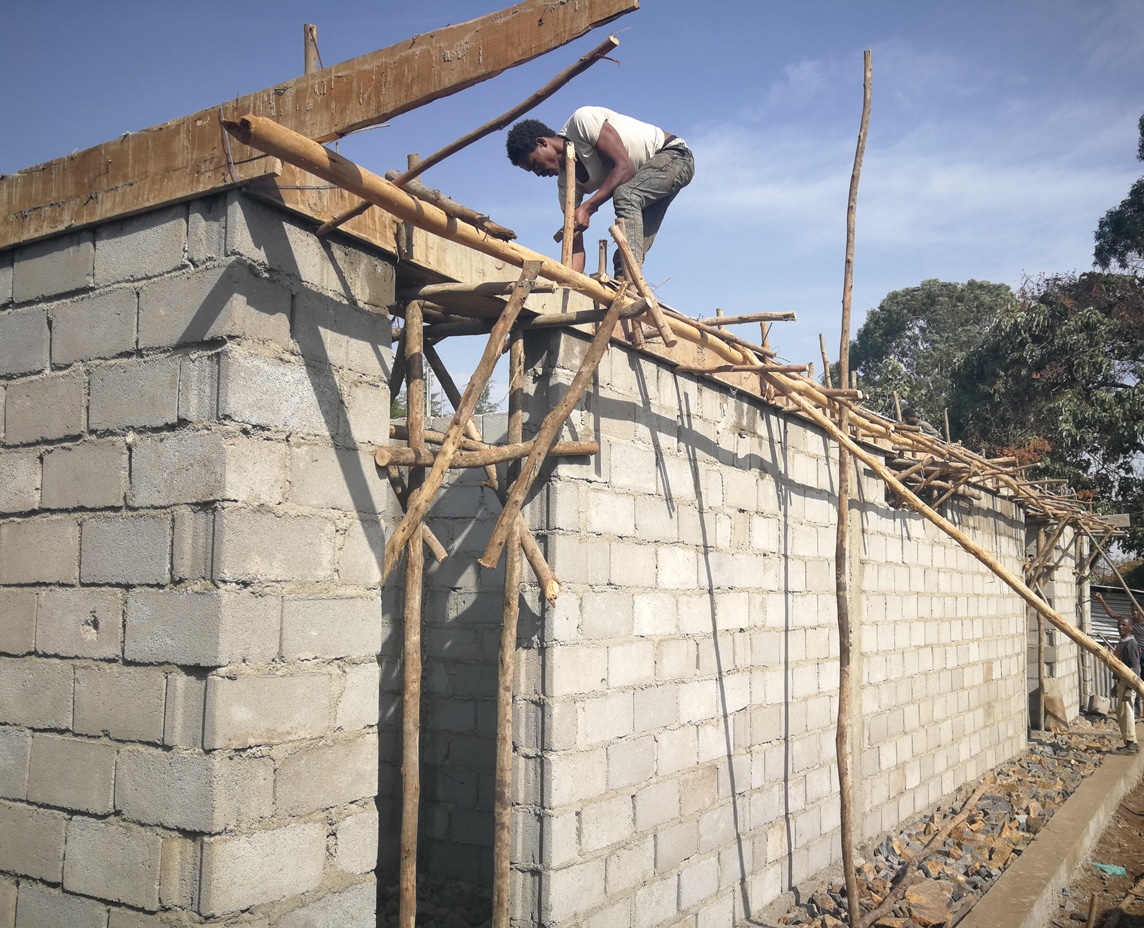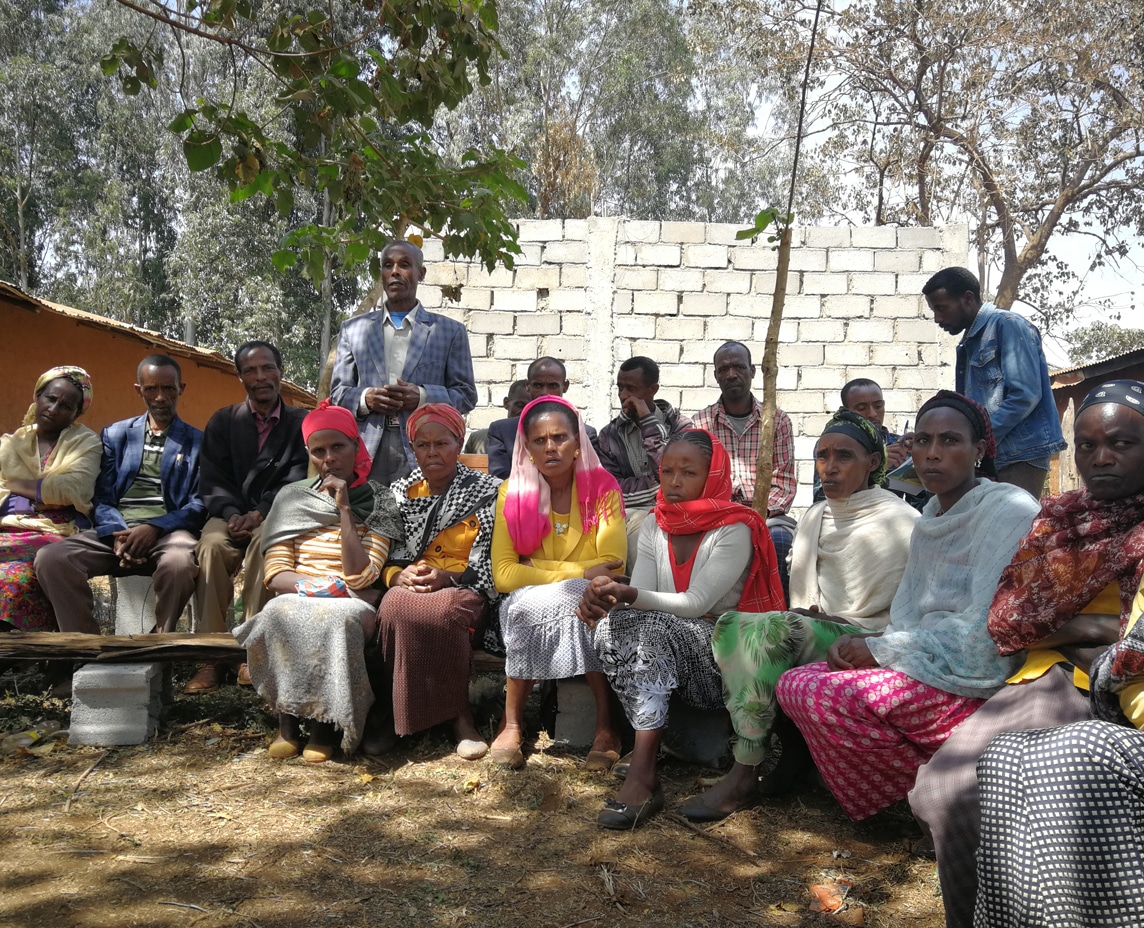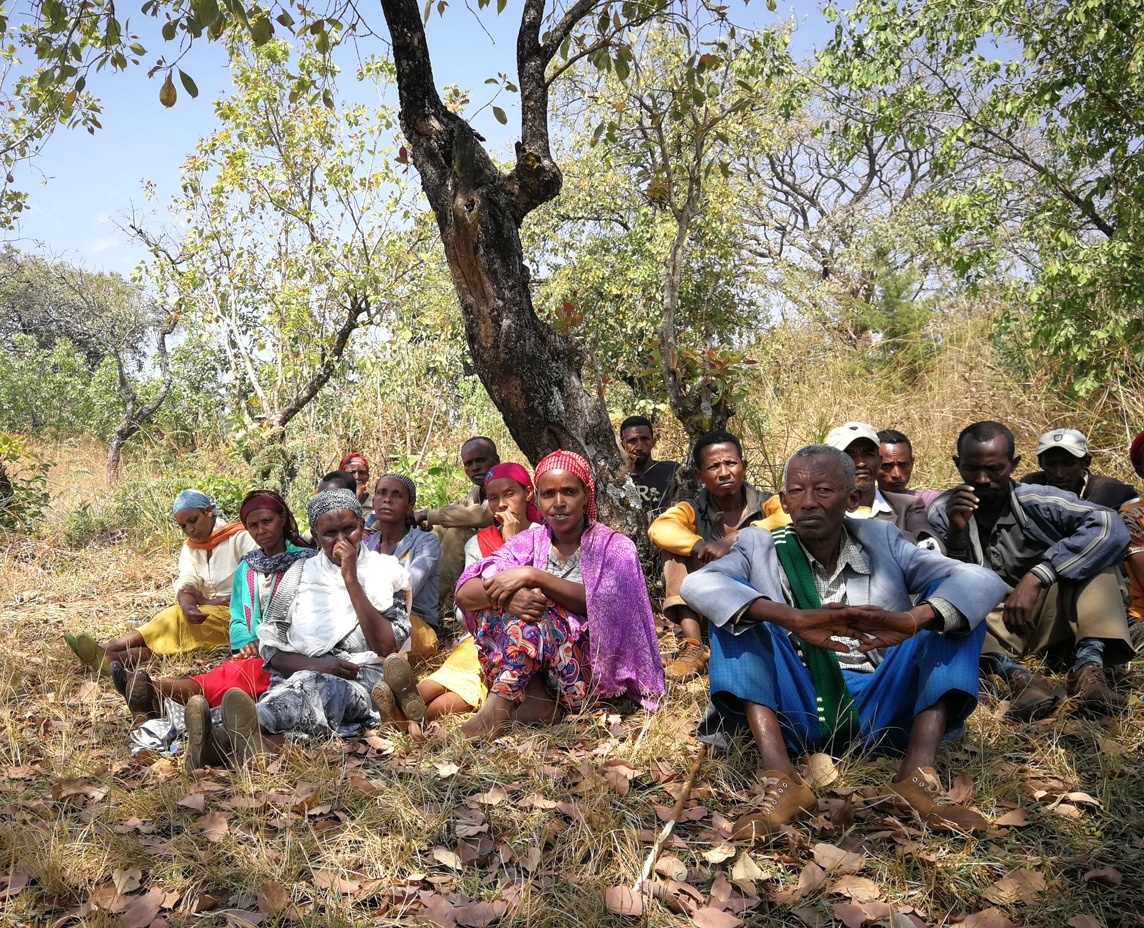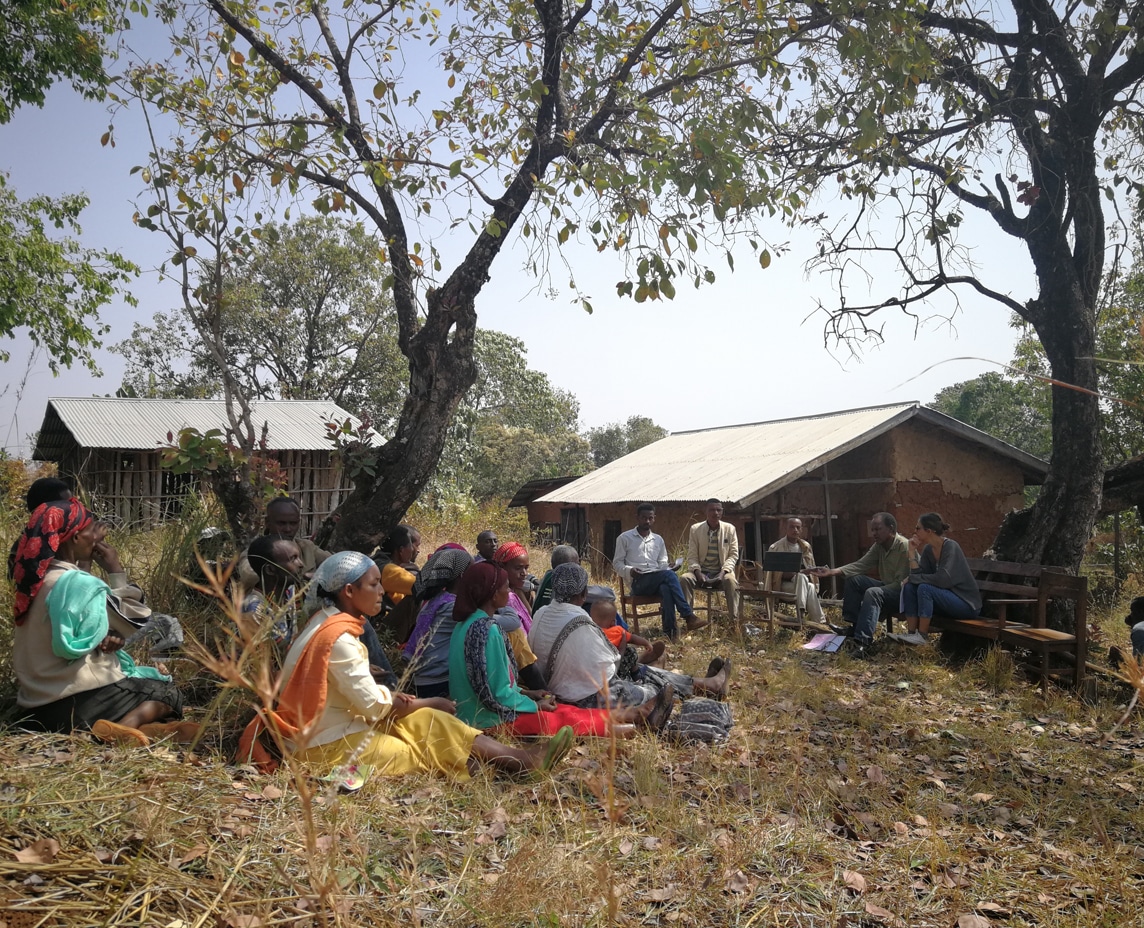The Social Promotion project financed by the Generalitat Valenciana in Nekemte, in the Region of Oromiya, “Integrated rural development with an environmental and gender approach in East Wellega (Ethiopia)” pursues the development in rural Ethiopia in the short, medium and long term through the promotion of more efficient sustainable agricultural techniques, the responsible use of lands and education in balanced nutrition.
The project is characterized by the reinforcement of agricultural and livestock production capacities as a mean to improve the living conditions of men and women holders of rights in four kebeles (communities) of the intervention zone. This reinforcement is linked to the creation and consolidation of cooperatives and the improvement of women’s participation in them.
Cooperatives created in the East Wellega communities of the Oromiya region allow farmers and ranchers, men and women, who are grouped in them, to face difficult situations such as harsh weather conditions, diseases that affect livestock or techniques of inefficient exploitation, with the aim of improving agricultural productivity and guaranteeing food security.
The reinforcement that is made of the cooperatives, in the scope of the project, will serve to improve the access of the holders of rights, in the situation of vulnerability, to services and agricultural and livestock supplies, such as seeds, agricultural tools and livestock inputs as animals. On the other hand, the cooperatives will provide veterinary assistance, in the premises built with the support of this intervention.
Recently our Head of Mision Immaculada del Pino and our local partner Ethiopian Catholic Church Social and Development Commission of Nekemte (ECC_SDCON) had a meeting with rights holders in the TokkumaTsige and Bashasa Jarso kebeles, where men and women rights holders have received animals for the diversification of income sources and contribute to improving the food security of families. In this kebele a nursery tree production to combat desertification has been also created.
In the meeting held with the holders of rights in the community, it was possible to observe their motivation before the activities that the project is implementing in their community. Most of them are dedicated to subsistence agricultural production and before the project they had limited access to productive resources. Thanks to the project they have reinforced their knowledge in productive resource management to apply in agriculture and livestock and livestock production.
The most immediate result is that the degrees of development of the animals they have received is positive and are in perfect health and some have already reproduced, which is a hope to improve their income with the increase of resources. On the other hand, access to livestock helps them to improve the preparation of farmland, which will help them to improve agricultural production at the same time.
The satisfaction showed during the meetings, reflected, in the words of Immaculate in a smile of hope, is a sign of the degree to which the holders of rights are getting involved.
Trough their co-participation involved farmers, men and women, receive tools and goods (including animals) through the kebele cooperative, which is responsible for distributing them and for putting the money in a common bank account, for later assignment to social work for the community.


